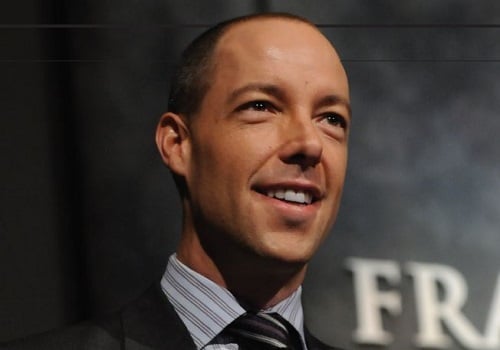Garey Aitken, CIO of Franklin Bissett Investment Management, explains how the market cycle informs his approach to fund construction

HAVING JUST celebrated his 20th anniversary with Franklin Bissett Investment Management, Garey Aitken is cautiously optimistic about the equity markets. Named chief investment officer last year, he oversees operations for the firm in Canada, Australia and the UK. Each jurisdiction presents unique challenges, but they also have many similarities.
“Some of the trends that we see in Canada are clearly in place in the UK and Australia, too,” Aitken says. “We are in a bull market for equities, but I think things have definitely matured, and there is price pressure there with more focus on passives and ETFs.”
Another characteristic of a bull market getting a little long in the tooth is that many investors forget what a bear market actually looks like and start to take on more risk. Aitken has noticed that behaviour becoming more pronounced lately.
“What inevitably happens as bull markets mature is that some people probably let their guard down as they reach for returns,” he says. “They might move away from time-tested business models, and new concepts start to gain appeal. In Canada, we can see that with the cannabis industry and with blockchain.”
Cautious optimism
Formerly with CIBC and Poco Petroleums, Aitken joined Bissett Investment Managedramatic ment in 1998, two years before its acquisition by Franklin Templeton. Since then, he has emerged as one of the firm’s most respected portfolio managers, a role he performs to this day with a number of funds, including the Franklin Bissett Canadian Equity Program Franklin Bissett Energy Corporate Class and Franklin ActiveQuant Canadian Fund.
While no fund manager can predict the future, the best ones prepare for all eventualities. The market slump at the beginning of February was a stark reminder that all bull markets eventually end, but in Aitken’s opinion, the fundamentals suggest strong stock performance heading forward.
“The degree to which these markets have moved in this bull market phase has been Managedramatic, to say the least,” he says. “I think the return potential is less over the next 10 years than we have had over the last 10 years, but I certainly wouldn’t be in the bear camp.”
Instead, he looks at market volatility as reason to proceed with caution, rather than switching to full-on defensive mode. The risk-reward paradigm will always be there, and currently, Aitken doesn’t see any reason to change his investment strategy. “I still come back to the interest-rate environment and the inflation situation we have,” he says. “Rates are higher than they were last summer, but they are still very supportive of equity markets. Our investment time horizon tends to be at least four or five years, and we expect pretty respectable returns over that time period.”
Central bank policy aside, the combination of high corporate earnings and global economic growth means there are plenty of good investment opportunities out there, regardless of how long the bull market has lasted. But the equity markets offer no guarantees, which is why Aitken researches each stock extensively before selecting it for one of his funds.
“As any good active manager will say, one has to be selective – some parts of the market have been better than others, and there have been some excesses built up,” he says. “I would probably say that every year, but particularly this year. Overall we think the market looks pretty good, but you have to be careful because it’s more dangerous than it has been in a while.”
ESG enthusiasm
In terms of portfolio construction, many different factors go into building a fund. One investment strategy that’s increasingly gaining traction is selecting companies with high environmental, social and governance [ESG] ratings. Aitken uses ESG in all of his funds, and although that acronym is relatively new in investment circles, it’s a long-standing part of Franklin Bissett’s investment ethos.
“ESG is a key element of our fundamental approach and always has been,” Aitken says. “There certainly is more of a focus on isolating those three elements in recent years. We tend to talk more about it now then we have in the past, but it is business as usual for us.”
Far from simply being a moral crusade, this trend is the right way to go on all levels, Aitken believes. “As true long-term investors, we are constantly focused on valuations,” he says, “so we have to bring into our investment thesis all germane issues affecting the business – so certainly corporate governance, social and environmental issues. Frankly, good practice on those issues makes business sense.”
In recent years, the term ESG has largely replaced SRI (socially responsible investing) among asset managers, and although the two sound similar, there are important differences when it comes to security selection.
“The socially responsible investing approach is based on views or certain expectations on behaviours,” Aitken says. “For us, it comes down to what is good business and what is the best way for us to earn long-term risk-adjusted returns, and clearly that needs to include ESG considerations.”
Applying ESG criteria comes more naturally for certain funds than others, but that doesn’t mean it is ever ignored. Aitken points to the Franklin Bissett Energy Corporate Class Fund as an example.
“There is no getting around the big ‘E’ issue within the energy sector,” he says. “On balance, as a jurisdiction with globally competitive regulations and laws, and companies that go above and beyond that, we know where companies stand on this issue, and we know where leading third-party entities like MSCI stand in terms of ESG ratings for these issuers.”



